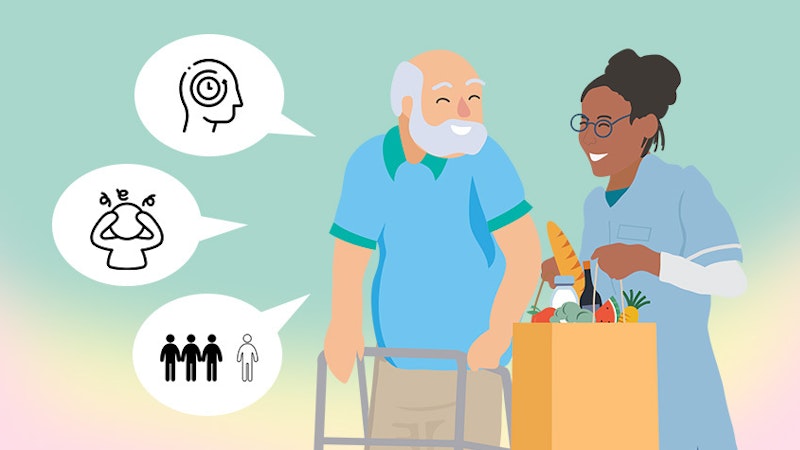
Dementia is a term used to describe a range of cognitive impairments that affect memory, thinking, and daily functioning. It is not a specific disease but rather a collective term for symptoms caused by various disorders affecting the brain. Alzheimer's disease is the most common form of dementia, followed by vascular dementia, Lewy body dementia, and others. In the United Kingdom, dementia is a significant public health concern, affecting around 944,000 individuals, according to the NHS.
Why do people with dementia need support?
Living with dementia poses numerous challenges for both the individual and their caregivers. Understanding the condition is crucial for providing effective support. One of the primary symptoms of dementia is memory loss, which can impact a person's ability to recall recent events or recognise familiar faces. Cognitive decline may also lead to difficulties in communication, problem-solving, and performing routine tasks.
How can I help support someone with dementia?
Supporting someone with dementia requires patience, empathy, and a tailored approach. Establishing a structured routine can provide a sense of security and familiarity, helping to reduce anxiety. Simplifying communication by using clear and concise language, maintaining eye contact, and avoiding distractions can enhance understanding. Creating a safe environment with minimal hazards and incorporating memory aids, such as calendars and labels, can contribute to a better quality of life.
Tools to help maintain routine:
Memory aids
Diaries and calendars
Dosette boxes
Automatic pill dispensers
Engaging in activities that stimulate the mind, such as puzzles, music, and therapy, can be beneficial in improving brain function. These activities are often incorporated into dementia care as part of cognitive stimulation therapy.
Helps to improve:
Cognitive function
Memory loss
Mood regulation
Motor Skills and Coordination
Physical exercise is also important, as it has been shown to have positive effects on cognitive function and mood. Incorporating regular physical activity into the care routine can have positive effects on various aspects of health.
Helps to improve:
Cardiovascular health
Cognitive function
Mood regulation
Sleep quality
Mobility
Stress
Maintaining social connections is crucial for emotional well-being, so encouraging visits from family and friends can contribute to a sense of belonging and support. The social aspect of human interaction plays a significant role in enhancing the quality of life for individuals affected by dementia.
Helps to improve:
Feelings of isolation
Social skills
Mood and Well-Being
Stress
Support services
In the UK, various organisations offer resources and assistance for individuals affected by dementia and their caregivers. The Alzheimer's Society provides information, support services, and local resources for those navigating the challenges of dementia. The National Health Service (NHS) also offers guidance on diagnosis, treatment options, and available support services.
You can also seek help from a local care provider. Care assistants allow individuals to live independently for as long as possible and help maintain a safe routine within the home. There are also live-in care options available for those who need extra support or are unsafe to live alone. Care assistants can alleviate some of the caregiver stress that dementia creates and enable families to continue to live as normally as possible.
For help looking for the right home care provider, check out How do I choose the right home care for my loved one?
Pairly also has a Care Calculator which can help you assess how much support you or a loved one may need in 11 simple questions.
